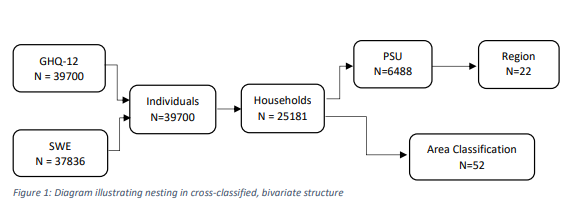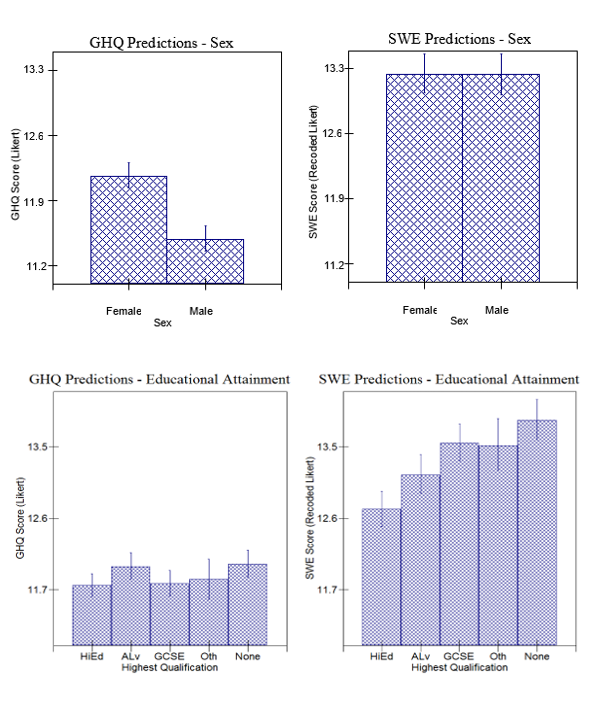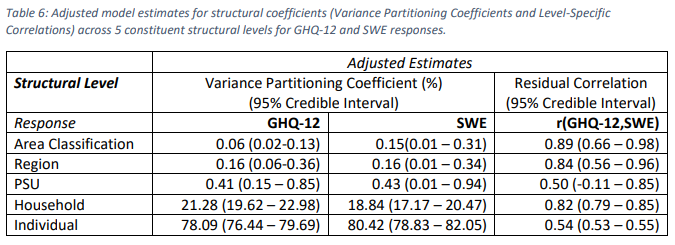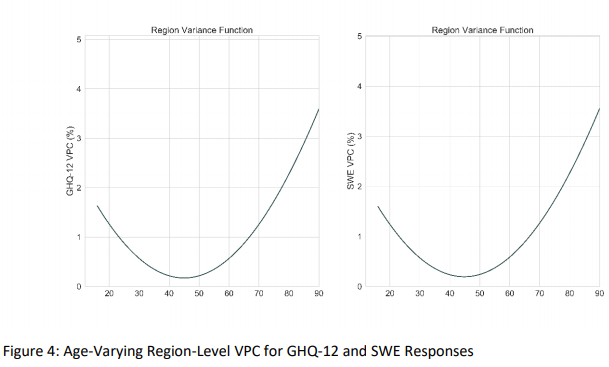Just had a paper (with Kelvyn Jones) accepted in Health and Place looking at the impact of spatial scale on measurement similarities between mental illness and mental wellbeing.
https://www.medrxiv.org/content/10.1101/2020.07.15.20152645v1.full.pdf
Short(ish) thread:
https://www.medrxiv.org/content/10.1101/2020.07.15.20152645v1.full.pdf
Short(ish) thread:
There are heaps of studies looking at the spatial distribution of mental health outcomes, aiming to identify geographical/contextual/n'hood effects.
This has a long history, dating back to Faris & Dunham (1939) looking at schizophrenia in urban Chicago.
https://psycnet.apa.org/record/1939-01453-000
This has a long history, dating back to Faris & Dunham (1939) looking at schizophrenia in urban Chicago.
https://psycnet.apa.org/record/1939-01453-000
As MH understanding evolved, outcome measures have also evolved, moving from psychoses to mood disorders to more recent turns to wellbeing.
Despite this, many health geographers and quant social scientists have a "close enough" attitude to measurement.
Despite this, many health geographers and quant social scientists have a "close enough" attitude to measurement.
We wanted to know:
1) Are there contextual effects for mental wellbeing and mental illness?
2) How similar are mental wellbeing and mental illness, and does this similarity change with scale of enquiry?
3) Does the importance of context differ for different age groups?
1) Are there contextual effects for mental wellbeing and mental illness?
2) How similar are mental wellbeing and mental illness, and does this similarity change with scale of enquiry?
3) Does the importance of context differ for different age groups?
Using Wave 1 of @usociety, we take data on ~40k newly recruited individuals and their reporting of two commonly used MH questionnaires, one developed to capture psychiatric morbidity (GHQ-12), and one developed to capture psychological wellbeing (SWEMWBS).
These individuals are nested in households, postcodes (PSUs), urban-rural regions, and area-classifications (taken from Vickers et al., 2007).
We specify bivariate response, cross-classified multilevel models to assess the relative importance of context for each response.
We specify bivariate response, cross-classified multilevel models to assess the relative importance of context for each response.
We find small but non-zero contextual effects at all structural levels for both outcomes in unadjusted models, with Area Classification and PSU seeming to explain more for wellbeing (SWE) than illness (GHQ-12).
Household level VPCs are notably high across both responses (~22%).
Household level VPCs are notably high across both responses (~22%).
Demographic patterning is similar across responses with two exceptions.
Strong sex differences for illness (GHQ-12), but no difference for wellbeing (SWE), consistent with prev research.
Evidence of a dose-response relationship for education on SWE which doesn't exist for GHQ.
Strong sex differences for illness (GHQ-12), but no difference for wellbeing (SWE), consistent with prev research.
Evidence of a dose-response relationship for education on SWE which doesn't exist for GHQ.
After adjusting for individual and household demographics, higher level variance predictably diminishes (see tables 5 and 6), but there is strong evidence that it remains non-zero for wellbeing.
Household remains important for both outcomes, accounting for 21.3% of GHQ-12 variance (95% CI 19.6-23.0) and 18.8% of SWE (17.2-20.5).
Moreover, correlation between household residuals for both responses is 0.82 (0.79-0.85), showing consensual MH experience within houses.
Moreover, correlation between household residuals for both responses is 0.82 (0.79-0.85), showing consensual MH experience within houses.
Finally we asked whether geography matters equally for all age groups. There is considerable literature written on importance of n'hood for ageing pops, but little quant survey evidence yet.
Importance of geography (esp. region) appears greater in senior populations.
Importance of geography (esp. region) appears greater in senior populations.
Overall, we find evidence of small contextual effects for both GHQ-12 and SWE.
Individual correlation (0.54) support two-continua model of MH for individuals, but higher level correlations suggest possible intervention targets for consensual benefit, particularly household.
Individual correlation (0.54) support two-continua model of MH for individuals, but higher level correlations suggest possible intervention targets for consensual benefit, particularly household.
We find evidence of greater importance of context amongst senior age groups - but rapidly become underpowered in oldest age groups.
Findings potentially support an area-based approach to consensual improvement of mental illness and wellbeing in senior populations.
Findings potentially support an area-based approach to consensual improvement of mental illness and wellbeing in senior populations.
Tl;dr - Health geographers and and spatial epidemiologists need to pay way more attention to measurement, as MH outcomes are *complex*.
Be explicit about outcomes and what you're using them to represent; and explicit about why you're using them *at the level you're using them*.
Be explicit about outcomes and what you're using them to represent; and explicit about why you're using them *at the level you're using them*.
Finally thanks to @usociety for data, @ESRC & @_SWDTP for funding, and @jessica_finlay, @david_j_manley, @graham_moon, @bristimtom, ,and @GTNOwen for advice and comments!

 Read on Twitter
Read on Twitter





